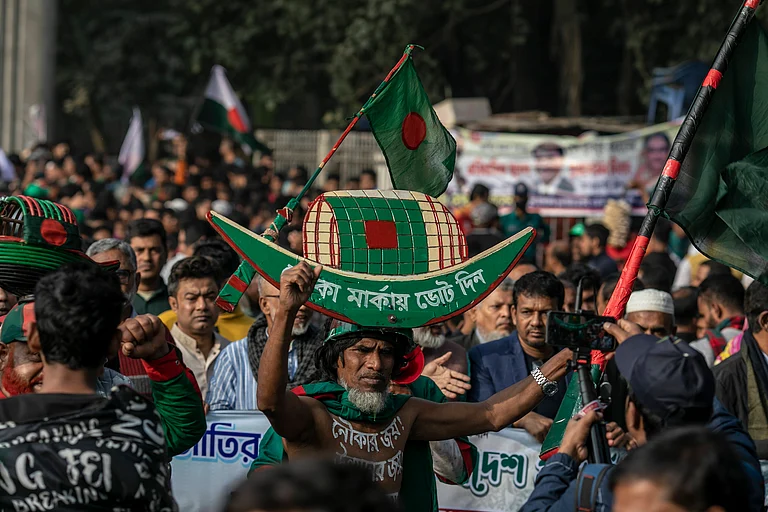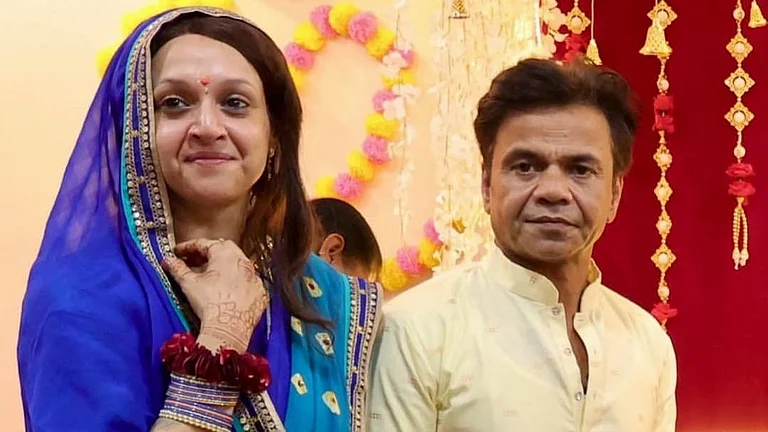The recent events in Maharashtra reverberate with echoes of the turbulent events of 2022.
In 2022, Shiv Sena leader Eknath Shinde had rebelled along with the majority of the party MLAs against the then-Maharashtra Chief Minister and party leader Uddhav Thackeray. The party was split into two factions and Shinde became the CM of Maharashtra after toppling Thackeray’s coalition government with Congress and Nationalist Congress Party (NCP).
Earlier this month, like a sudden crack in fragile porcelain, the NCP found itself split into two factions like Sena. The political cunning gave Maharashtra its third Deputy Chief Minister in the form of Ajit Pawar.
Tracing the quick and sudden revolt by Ajit Pawar
More analogously, Ajit Pawar seems to be treading an eerily familiar path as Eknath Shinde.
Shinde, opting for a safer legal route, had refrained from devising a new party or merging with the Bharatiya Janata Party (BJP). Cunningly manoeuvring in a bid to wrest control of the Sena’s political heft at the behest of the BJP succeeded. Ajit, nephew of NCP patriarch Sharad Pawar, similarly stakes his claim on commanding the ‘original NCP’.
Demonstrating the original party is half the victory in conquering the anti-defection law. An exemption from it requires three elements:
- Two-thirds of the MLAs from the party, when it was whole, must severe themselves and support the rebel faction.
- This fraction of two-thirds must represent the original party.
- It must merge with another party present in the legislature.
Shinde ensured more MLAs than required before cleaving the Sena. In parallel, the Election Commission (EC) declared his group as the authentic party while deciding the allotment of the Sena’s symbol. While disqualification proceedings languish in the Speaker’s chambers, the likelihood is favourable for Shinde. Albeit, the victory before the EC now hangs in the balance, awaiting scrutiny by the Judiciary. Shinde, however, may bask in the intervening triumph by calling his wing the ‘Shiv Sena’, as long as both cases remain unresolved until the next elections in 2024. The younger Pawar appears to be engineering a similar case.
Altered situation, revised norms
While the situations of Shinde and Ajit might appear to be same, there exist inevitable variations that Shinde did not encounter. These emanate from the Supreme Court’s decision in May.
The SC, grappling with Thackeray’s resignation, declared its inability to reinstate a legal government. Yet, it altered the standards for discerning the ‘original party’.
The Apex Court declared that originality need not be ascertained through a mere numerical assessment of each faction. The finality of such figures is fickle if they face disqualification proceedings. Instead, the appropriate test involves assessing the factions’ adherence to the party constitution. Ajit’s adherence to the party’s ideals was always flimsy, evidenced best by his attempt to rebel in 2019. He was promptly punished by way of dismissal from the sole party-post he then occupied.
Of greater significance is that the Sena saga witnessed Thackeray’s defeat before the EC due to a crucial factor. During the debate on the retention of symbols, the EC discovered that the Sena lacked a consensus-driven atmosphere. An amendment to the Sena’s party constitution concentrated decision-making powers in the hands of the party president. If a party lacks a democratic constitution with ample room for deliberation, the legal test to determine the original party becomes the ‘majority test’. A disqualification proceeding sorts the applicable legal test accordingly.
In the present case, the NCP’s internal document bears no such ills. While Sharad Pawar has held the presidency for a considerable time, the party does not suffer from the same authoritarianism as the Sena’s amended constitution enabled. All decisions require ratification by the NCP’s working committee as opposed to the party chief’s alone (Chanchal 2023). Even more decisive is the rebel Pawar’s claim that he officially secured a majority within the NCP, well before his mutiny (TW Web Desk 2023). This highlights the inner democracy within the NCP. Thus, the application of the ‘adherence test’ becomes decisive, which demonstrably disfavours the nephew.
With the originality pre-condition missing, the exemption from anti-defection evaporates. However, the anti-defection rule will only dismantle the recent revolt if it applies. Vitally, the Supreme Court has made the rule trigger-happy, leaving it poised to strike without hesitation.
Previously stout, the legal bar entered the fray only when the insurgency was borne out of a ‘split’. This split occurred when the original party was ruthlessly hacked down the middle, as opposed to wilful shedding as a party strategy. Only in the former case defection was recognised, since, it denoted a fundamental overhaul in the party’s identity. This is precisely why it was a sound legal strategy for the likes of Shinde to deny a split and present themselves as custodians of the original party. However, the revision in May introduces a pivotal change: now, the shift in identity occurs even if both factions claim to be authentic and deny any schism. So while both factions of the NCP deny a split, the law on defection shall apply regardless. As proposed, the odds favour the elder Pawar when the test indeed transpires.
The potential judicial intervention in Pawars’ feuds
There exists another variable that may not directly dissipate the rebels’ defence from anti-defection, but is vital nevertheless. In May, the Supreme Court declined to assume the Speaker’s jurisdiction over disqualification proceedings, citing the absence of extraordinary circumstances.
In Pawar’s case, compelling exigencies exist. To begin with, Shinde’s disqualification hearings have not moved an inch, contradicting the directions in May. Moreover, the Speaker seems to have passed a pre-judgment on the absence of any split. The court may weigh all this crucially and short-circuit the Speaker’s office this time around. Furthermore, Pawar’s manoeuvring comes as the Maharashtra Assembly’s term is closer to its end. Following precedent, the Court may now deny any interim benefit of the doubt to Pawar’s MLAs and instead determine it promptly.
Ajit’s ascent to number two position in the state may ultimately fail due to these factors. Despite his efforts to retain the NCP’s symbol, the disqualification proceedings may precede them and ruin his coup.
(Yash Sinha is a Delhi-based advocate. Views expressed are personal.)





















